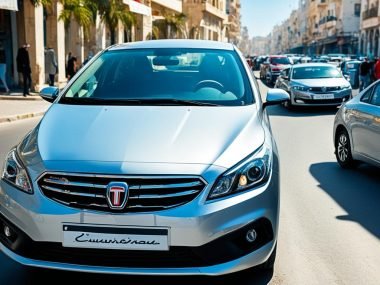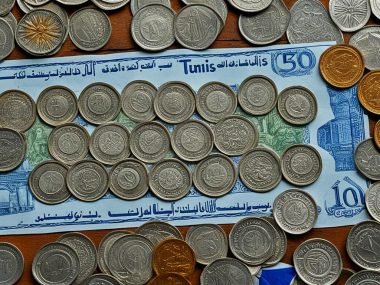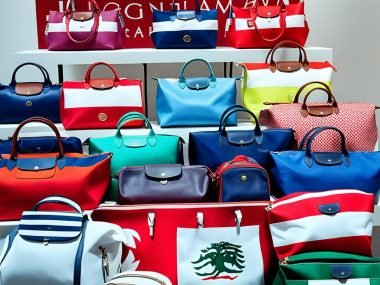Key Takeaways
- Diesel is an Italian clothing company known for its denim and casual wear
- While Diesel manufactures some of its products in Italy, a significant portion is produced in other countries like Tunisia
- Tunisia has emerged as a major manufacturing hub for Diesel jeans due to lower labor costs and attractive trade agreements
- However, there are concerns about labor practices and working conditions in some Tunisian garment factories supplying Diesel
- Diesel has faced criticism from labor rights groups over its manufacturing in Tunisia, though it maintains compliance with local laws
Are Diesel Jeans Made in Tunisia?
For fans of Diesel jeans and casual wear, the “Made in” label carries significant weight. The Italian brand has built a reputation around its edgy denim designs and laidback aesthetic. However, a closer look reveals that while Diesel’s roots are in Italy, much of its manufacturing has been outsourced to other countries, with Tunisia emerging as a major production hub.
| Pros of Manufacturing in Tunisia | Cons of Manufacturing in Tunisia |
|---|---|
| Lower labor costs compared to Italy and other European countries | Reports of poor working conditions, low wages, and excessive overtime at some supplier factories |
| Close proximity to European markets, facilitating exports | Criticism from labor rights groups over alleged failure to ensure fair practices |
| Trade agreements like EU-Tunisia Association Agreement allow duty-free exports to Europe | Concerns over lack of transparency and accountability in supply chain |
| Job creation and economic development in Tunisia | Ethical concerns over prioritizing profits over worker rights and dignity |
| Perceived lack of oversight and enforcement of labor standards |
The Rise of Tunisia’s Garment Industry
Over the past few decades, Tunisia has become an attractive destination for European fashion brands seeking lower-cost manufacturing solutions. With its relatively low wages and close proximity to Europe, the North African nation has managed to attract investments from major clothing companies like Diesel. Additionally, trade agreements like the EU-Tunisia Association Agreement have facilitated duty-free exports of Tunisian-made apparel to European markets.
According to industry reports, Diesel operates several manufacturing facilities in Tunisia through third-party suppliers and subcontractors. These factories employ thousands of local workers who produce a substantial portion of Diesel’s denim and casual clothing lines for both the European and global markets.
Labor Concerns and Criticism
While the move to Tunisia has allowed Diesel to reduce its production costs, it has also attracted criticism from labor rights organizations. Reports have surfaced about poor working conditions, low wages, and excessive overtime in some Tunisian garment factories linked to Diesel’s supply chain.
For instance, in 2019, the Clean Clothes Campaign, a global alliance dedicated to improving working conditions in the garment industry, called out Diesel for its alleged failure to ensure fair labor practices at a Tunisian supplier’s factory. The report cited issues such as workers being paid below the minimum wage, lack of job security, and inadequate measures to prevent workplace harassment.
In response, Diesel maintained that it strictly adheres to local labor laws and regulations in Tunisia. The company also stated that it conducts regular audits and inspections to monitor compliance with its supplier code of conduct. However, labor advocates argue that these efforts are insufficient and that brands like Diesel should take more proactive measures to protect workers’ rights throughout their supply chains.
The Debate over “Made in Tunisia”
Jeans The controversy surrounding Diesel’s Tunisian manufacturing operations has reignited a broader debate about the ethics of outsourcing and the true cost of affordable fashion. While consumers may benefit from lower prices, some argue that these savings come at the expense of exploited workers in developing countries.
Proponents of Diesel’s strategy argue that the company’s presence in Tunisia has created much-needed job opportunities and contributed to the country’s economic development. They contend that as long as Diesel adheres to local labor laws, its practices are ethically acceptable, even if conditions may not match Western standards.
Critics, on the other hand, assert that global brands like Diesel have a moral obligation to ensure decent working conditions and fair wages for all workers involved in their supply chains, regardless of location. They argue that the pursuit of profit should not come at the cost of human rights and worker dignity.
As the debate rages on, consumers are faced with a choice: prioritize affordability and accessibility, or pay a premium for brands that prioritize ethical manufacturing practices closer to home.
The Future of Ethical Fashion
Ultimately, the controversy surrounding Diesel’s Tunisian operations highlights the complex challenges facing the global fashion industry. As brands continue to seek cost-effective manufacturing solutions, they must strike a delicate balance between economic imperatives and ethical considerations.
Moving forward, increased transparency and accountability will be crucial in addressing concerns over labor practices and working conditions. Brands like Diesel may need to invest more resources into auditing and monitoring their supply chains, while also engaging with local stakeholders and workers to understand their challenges and needs better.
Additionally, consumers play a pivotal role in driving change by making informed purchasing decisions and demanding greater transparency from their favorite brands. As awareness of ethical fashion continues to grow, companies that prioritize sustainable and ethical manufacturing practices may gain a competitive advantage in the long run.
In the end, the question of whether Diesel jeans are made in Tunisia is not a simple yes or no answer. It is a complex issue that touches on broader themes of globalization, labor rights, and the true cost of fast fashion. As the industry evolves, it remains to be seen whether brands like Diesel can strike the right balance between affordability and ethical responsibility.
For fans of Diesel jeans and casual wear, the “Made in” label carries significant weight…
FAQ
- Does Diesel manufacture all its jeans in Tunisia? No, while Tunisia is a major production hub for Diesel, the company also manufactures some of its products in Italy and other countries. The amount produced in Tunisia versus other locations can vary by product line and season.
- What are some of the labor concerns associated with Diesel’s manufacturing in Tunisia? Major concerns raised by labor rights groups include low wages, excessive overtime, lack of job security, and inadequate measures to prevent harassment and abuse in some Tunisian supplier factories used by Diesel. However, Diesel maintains compliance with local labor laws.
- How is Diesel addressing ethical concerns over its Tunisian operations? Diesel states that it conducts regular audits and factory inspections to monitor supplier compliance with its code of conduct. However, critics argue these efforts are insufficient and that the brand should take stronger action to protect worker rights throughout its supply chain in Tunisia.







